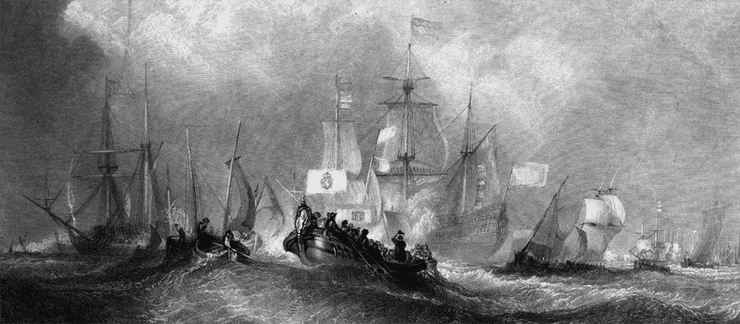This week in history: William of Orange lands at Torbay
Almost uncannily timed to coincide with the rout of the earlier Catholic gunpowder plot against parliament, William III of Orange, the Dutch Protestant king, landed at Brixham, Torbay, in Devon on 5 November 1688.

5 November 1688: William of Orange lands at Torbay
Almost uncannily timed to coincide with the rout of the earlier Catholic gunpowder plot against parliament, William III of Orange, the Dutch Protestant king, landed at Brixham, Torbay, in Devon on 5 November 1688.
William had been invited to seize the British throne from the reigning Catholic King James II, who had suspended some laws against Catholics, by the ‘Immortal Seven’ — a powerful group of British nobles opposed to Catholic succession and composed of the Bishop of London, the Earl of Danby, the Earl of Shrewsbury, the Earl of Devonshire, Viscount Lumley, Edward Russell and Henry Sydney.
The Dutchman duly arrived under a banner headed ‘For liberty and the Protestant religion’. His Glorious Revolution wasn’t entirely bloodless. At least fifty people died in a fierce battle at Reading less than a month after the landing.
But William’s progress to London and power was swift. By the following February, William was to made joint monarch with his wife Mary, James II’s protestant daughter. James had by then fled to France. His escape, facilitated largely by William and his advisors, was subsequently construed constitutionally as an act of abdication.


